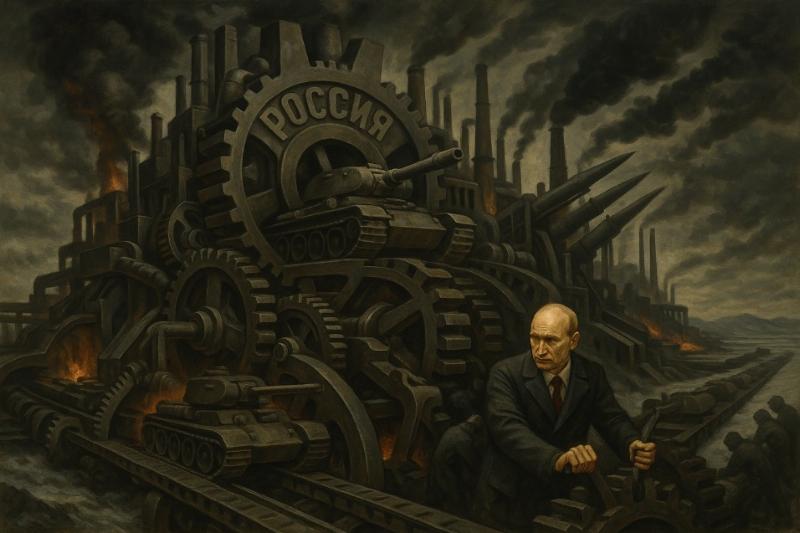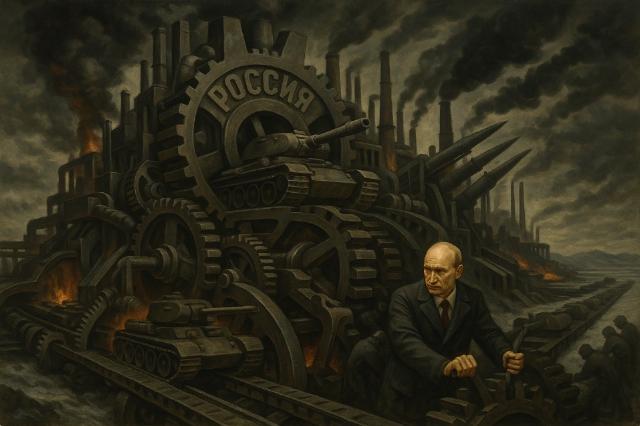


Here is an excerpt from a memorandum (1900) written by the Russian War Minister General Kuropatkin to Emperor Nicholas II:
Your Imperial Majesty! Throughout the 18th and 19th centuries, Russia spent 128 years at war… Of those, only 5 were defensive wars; all the rest—aggressive campaigns… The foreign wars lasted more than 67 years of continuous fighting; the defensive wars lasted 2 years and 1 month. The rest, 121 military operations, were waged beyond the borders of the empire.
The Soviet regime became the direct heir of tsarist power, though far bloodier and more aggressive. After the Bolsheviks’ coup of 1917, the Soviet-Russian policy ignited World War II, causing tens of millions of deaths and reshaping the world. But that horrific war was far from the only one. During the USSR’s 73 years of existence, the list of wars it waged is enormous—a total of 25, including conflicts in the Caucasus, the Baltic states, Finland, Poland, Germany, Japan, Afghanistan, Spain, Hungary, and Czechoslovakia.

Image by ChatGPT.
The Soviet ambition to recreate the Russian Empire under the red banner and expand it across the globe was only partially successful. Stalin’s plan to conquer Europe with Hitler’s help, after which he’d enslave Germany, failed. In Stalin’s eyes, the victory that followed WWII was a meager one—instead of the whole world, he found only Eastern Europe under his boot. So, a few years after that victory, once he had acquired nuclear weapons, he redirected the country toward World War III.
After the collapse of the Soviet empire, Russia’s predatory mindset did not vanish. Since 1991, Russia has continued to exist in a state of permanent war: Georgia, Chechnya, Syria, and now the most senseless war of all—against Ukraine.
A natural question arises: why?
Looking for a rational explanation is pointless. Russia has always acted irrationally, without any clear benefit and almost always to its detriment. The root of all its imperial wars should perhaps be studied through the lens of psychology or even psychiatry, which is not what I intend to do in this essay. My aim is much simpler: to draw attention to the ultimate goal of Russia’s current war against Ukraine.
At first glance, the goal seems obvious: seizing its territory and resources, and enslaving the population. A seemingly standard objective, like so many wars of conquest throughout history. But it’s not that simple; in fact, it’s the wrong answer, because it immediately raises the same question again: why?
Let us assume, purely hypothetically, that Russia succeeds: it conquers Ukraine and installs a puppet regime there. Then what?
Will it extract Ukraine’s natural resources? But Russia already has more natural wealth than it can swallow.
Does Russia hope that Ukrainians will mine all those resources themselves and send the profits to Moscow? Does it believe the Ukrainian industry and agriculture will simply start supplying Russia with goods?
If the Kremlin truly thinks so, it is laughably naive: Ukrainians are not Russians, who historically “laid themselves down” under any horde. Ukrainians do not have an ounce of slave mentality, and they will not work for a master.
In reality, the opposite will happen—the “enslaved” Ukraine will turn into a permanent festering wound of sabotage, guerrilla warfare, and ultimately, another financial sinkhole, where Russian budget funds will drain away like water into a sewer.
So, it is entirely clear: Russia has no coherent long-term plan for Ukraine—none. Then again: why?
The answer is in the title of this essay: Russia can exist only in a state of permanent war.
Therefore, the goal of the Russia-Ukraine war is war itself. Nothing more.
Waging war is far easier than building the prosperity of one’s country. War demands centralized control, a vertical power structure, no democracy, and no freedom of thought or action. War is a convenient excuse for every problem. War allows failure to be shifted to the “enemy,” whether external or internal.
The Russian Empire, the USSR, and today’s Russia are all built in a military mold. Yet, the only thing an army truly exists for, the only thing it is supposed to do—at least in theory — is fight wars. An army, and a state modeled after an army, cannot create anything. That requires a completely different structure and an entirely different modus operandi.
The U.S., Ukraine, and all European countries call on Russia to come to the negotiating table and end this senseless war. Unfortunately, they don’t understand—or prefer not to understand—that Russia doesn’t need Ukraine. Russia doesn’t even want victory! Russia needs war! Only war.
Without war, Russia cannot exist. Peace—even temporary peace—will inevitably lead to internal tensions, which so far have been smothered by external wars. In peacetime, centrifugal forces could emerge in the country, and the very existence of the Russian state as a single entity would be threatened.
Moreover, the end of the war would require an inevitable transformation of a military economy into a civilian one. But with Russia’s current legal and political structure, this is impossible.
After WWII, the U.S. industries were able to quickly switch to peacetime, something its democratic system made possible. The USSR, however, did not want to, and even if it had, it couldn’t. The Soviet experience showed that state-run industry is inefficient, while private enterprise requires freedom of choice and, most importantly, the rule of law, something Russian history has never had.
Any attempt to shift Russia onto peaceful tracks would cause the collapse of the centralized power and the loss of vast fortunes amassed by the ruling class through illicit means. Therefore, neither the top of the power structure nor the privileged layers of Russian society have any interest in peace.
It is no wonder that neither the pleas of world leaders nor Trump’s ultimatums will bring peace—the war will go on. Even if the collective West somehow manages to exert such economic, political, and military pressure that Russia ends its war in Ukraine, it will only be a pause.
Russia cannot live without war—it will inevitably find its next victim: one of the Central Asian republics, Georgia, Armenia, Moldova, maybe even one of the Baltic states—someone. Russia’s current leadership simply has no choice but to wage war. And they will go on until the end.
Until their end.
Author’s website: www.fraden.com
